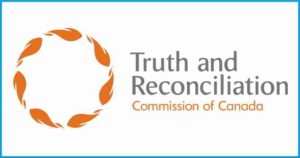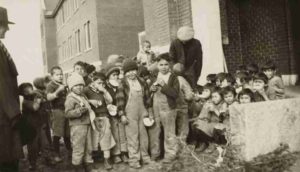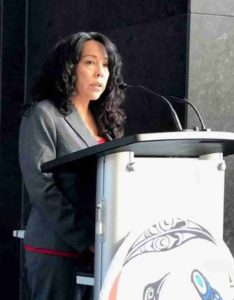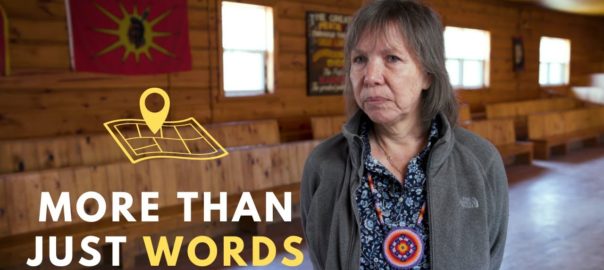
In contemporary discourse, acknowledgment of reconciliation at the commencement of gatherings of people — when such gatherings take place in Parliament, the Legislature, or at meetings of municipal Councils, or more informally at other types of political meetings, in churches, at housing co-operative meetings, or even when people gather to take in a screening at the Vancouver International Film Festival’s VIFF Centre — has gained considerable attention and importance.
The land acknowledgment serves as a recognition of past injustices and a commitment to moving forward with mutual respect and understanding.
Today on VanRamblings, we’ll explore the significance of the reconciliation acknowledgment in fostering inclusivity, building relationships, and promoting healing within organizations and communities.
One significant catalyst for the reconciliation acknowledgment was the global recognition of the need to address the historical and ongoing impacts of colonization on Indigenous peoples. This recognition was spurred by advocacy efforts from Indigenous communities, grassroots organizations, and allies pushing for truth, justice, and reconciliation.

In Canada, the Truth and Reconciliation Commission (TRC), established in 2008, played a pivotal role in raising awareness about the legacy of residential schools and advocating for reconciliation between Indigenous and non-Indigenous Canadians. As part of its Calls to Action, the TRC called on governments, organizations, and individuals to recognize and respect Indigenous rights, cultures, and traditions, through the acknowledgment of traditional territories and treaties.
By acknowledging the traditional owners of the land and recognizing the histories of colonization and marginalization, a space is created where all participants feel valued and respected. This acknowledgment extends beyond geographical boundaries, encompassing the acknowledgment of past wrongs against Indigenous peoples, marginalized communities, and minority groups.
The voicing of the land acknowledgment signals a commitment to equity and diversity, creating an environment where everyone’s voice is heard and valued.
Acknowledging reconciliation at the outset of meetings builds trust and strengthens relationships among participants. It demonstrates a willingness to confront uncomfortable truths and engage in meaningful dialogue about the legacy of colonialism, oppression, and discrimination.
The land acknowledgment also opens the door for honest conversations about privilege, power dynamics, and systemic injustices, fostering empathy and understanding among individuals with diverse backgrounds and experiences. Through the reconciliation process, relationships based on mutual respect and solidarity are cultivated, laying the foundation for collaborative action and social change.
Reconciliation acknowledgment is an essential step towards healing historical wounds and addressing intergenerational trauma. By acknowledging past injustices and their ongoing impacts, it validates the experiences of those who have been marginalized and oppressed.
This acknowledgment is not merely symbolic but serves as a tangible commitment to truth-telling, justice, and reconciliation. It provides an opportunity for healing and restoration, allowing individuals and communities to confront the legacies of the past and work towards a more equitable and inclusive future.

Canadians grieve the finding of the mass graves at the Kamloops Indian residential school, the 215 children lost to their families when they were taken by the government, but also for their lost lives.
Joanne Mills, the Executive Director of the Fraser Region Aboriginal Friendship Centre, has expressed concern about overuse of the the word reconciliation.
“Reconciliation in Canada is more about the acknowledgement that there were wrongs, but there isn’t a lot of action attached to it. It’s difficult to be talking about reconciliation while one party is in power and another is still asking for rights from the former.
There definitely isn’t an equal power distribution. We’re not coming to the table as peers, we’re still coming to the table as have and have-nots,” she says.
 Joanne Mills says for reconciliation to take shape, there needs to be an honest attempt to restore to Indigenous people what was taken at the time of colonization.
Joanne Mills says for reconciliation to take shape, there needs to be an honest attempt to restore to Indigenous people what was taken at the time of colonization.
“I just don’t want to talk about the stereotypes anymore. People should go and educate themselves and learn the truth,” Mills says.
Mills says inequality remains in areas of provincial jurisdiction, such as the high rates of Indigenous kids in foster care in B.C., access to education and over representation of Indigenous people in prison.
B.C. has seen changes in elementary and secondary school curriculum to include more education about Indigenous people, but there have been bumps along the way. Some teachers say they are at a loss on how to teach Indigenous content. Others say they lack sufficient resources.
The adoption of reconciliation acknowledgments reflects a broader societal shift towards acknowledging and confronting the injustices of the past, promoting dialogue, understanding, and working towards an inclusive and equitable future. While the genesis of the reconciliation acknowledgment vary across contexts, its underlying principles of recognition, respect and reconciliation remain universal.
